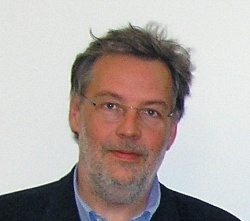The HealthCare Summit
Aiming to advance strategies that enhance the service, quality and competitive powers of German and Austrian hospitals
At this year’s two-day HealthCare Summit, held in Berlin, 58 representatives of hospitals and healthcare facilities, IT specialists and consultants discussed financing, market orientation, IT solutions and telematics.


The conclusion of many lectures notably promoted the expansion of internal and external cooperation. For example, Professor Björn Bergh, Head of Centre of information and medical technology (ZIM) at Heidelberg University Hospital, underlined the outstanding importance of concerted actions with the medical devices industry. In his lecture Experiences in operating/managing cross-linked medical devices, Prof. Bergh presented his department’s structure and method and described current problems in their daily work. At the end of 2004 the IT and medical technology departments were integrated at the hospital, in a department that now employs 170 people and is responsible for 30,000 active medical devices. During the department reconstruction, Prof. Bergh introduced a self-directed wired and wireless network to connect medical devices (Vlan).
Prof. Bergh’s personal experiences showed that the majority of the devices, gateways and servers still does not fulfil all IT-requirements, there is often no, or limited, virus protection (delayed patching), no, or minimal, access control, a limited standards support and a substantial lack in overall systems integration; furthermore there is no, or limited, management functionality. ‘Devices are threatening the IT and not vice-versa. We never had the situation that a galvanic couple problem occurred in a device -- in fact the only possibility to destroy medical devices,’ he said.
One of the biggest problems remains the lack of security. ‘Banks have a better security system, but they don’t have a zoo of 5,000 device manufacturers that fly around in their network and cannot be influenced,’ the professor pointed out. His team have developed their own preliminary solution of isolated networks to protect the whole network and the devices, because solutions could not be purchased; they have to be developed together with the industry.
In his lecture on the Implementation of entire electronic patient record (ePR) Michael Wiltschnigg also referred to the importance of internal/external cooperation. As head of IT-department within the corporate network of the Barmherzige Brüder religious order in Austria, which operates eight hospitals and four healthcare facilities and employs 5,300 people – he said the introduction of ePR was a success. He traces that back to the involvement of physicians, nurses and IT-specialists working together on the development, so that their needs and experience were incorporated very well into ePR. ‘We were lucky that so many physicians and nurses were interested and were given time off by Barmherzige Brüder to participate in project.’ A further ingredient of the success as the close collaboration with external IT-partners, particularly the software developer AHIS, he added. The special software they jointly developed enabled the ePR to be installed as a sub-system of general hospital information system (HIS).
Presently, 20 departments work with the ePR and about 250 medical devices are connected. All data are digitised during ward rounds. There are no paper files. The ePR offers all information about a patient (pictures, radiographs, documents and data) on one plane. For example, for ward management there are tools to calculate a legible fever chart, drug prescriptions and administration, medical instructions, an intelligent alarm system etc. To enter the system the user simply enters his/her identification with the forefinger. Biometric access control ensures a secure and fast procedure.
19.11.2009









